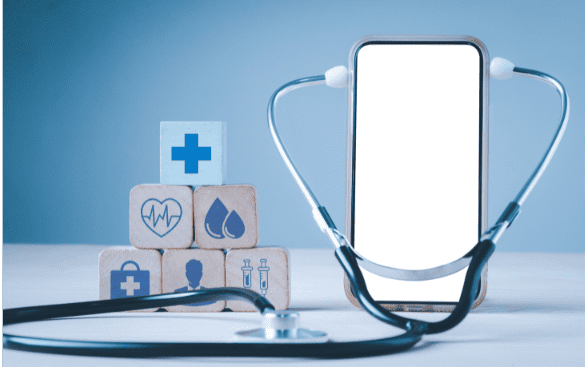CREATION OF MEDICAL CLINIC WEB APP USING REACT, NODEJS AND MONGODB
Overview
The medical Clinic wanted to create a web app that allowed healthcare providers to view and update the medical records of their patients while complying with the HIPAA regulations on the protection of patient data. They decided to use Google Cloud Platform (GCP) to host the app and handle the security and compliance aspects.
Requirements
Our client wanted following features in the app:
- Healthcare providers should be able to view the medical records
of their patients, including test results, prescription history, and
diagnoses. - Healthcare providers should be able to update the medical
records of their patients. - The app should be HIPAA-compliant, with appropriate safeguards
to protect the confidentiality and integrity of the patient data.
Solution
The development team decided to use GCP to host the app because of its comprehensive security and compliance features. They used Google App Engine to host the web app and Google Cloud SQL to store the patient data in a database.
For the medical records viewing and updating features, the team implemented a web app that displayed the patient data in a secure and user-friendly manner. They used Google OAuth for secure authentication and authorization, allowing only authorized healthcare providers to access the app.
To ensure HIPAA compliance, the team implemented several measures on GCP. They encrypted the patient data in transit and at rest, using SSL for secure communication and Google Cloud Key Management Service for key management. They also implemented role-based access controls, allowing only authorized users to access the patient data. They regularly audited the access logs and performed security assessments to ensure the security of the app.
Resuls
The HIPAA-compliant EHR app was successfully launched and received positive feedback from healthcare providers. They appreciated the user-friendly interface and the secure and compliant handling of the patient data. The use of GCP helped to give them confidence in the app's security and compliance.
CODE SAMPLE
Here is a sample code snippet demonstrating the use of Google OAuth for secure authentication and authorization in the EHR app:
Copy code
import google from ‘googleapis’;
import OAuth2 from ‘google-auth-library/build/src/auth/oauth2client’;
const clientId = process.env.CLIENT_ID;
const clientSecret
import google from ‘googleapis’;
import OAuth2 from ‘google-auth-library/build/src/auth/oauth2client’;
const clientId = process.env.CLIENT_ID;
const clientSecret
To ensure HIPAA compliance in the EHR app, the development team implemented the following measures:
The development team encrypted the patient data in transit and at rest to protect the confidentiality of the data. They used SSL for secure communication between the client and the server and Google Cloud Key Management Service for key management. This ensured that the data was protected from unauthorized access during transmission and storage.
The development team implemented secure authentication and authorization using Google OAuth. They implemented a login page that used Google OAuth to authenticate users and send them to the dashboard page. They also implemented an API that verified the Google OAuth token included in the request header before processing the request. This ensured that only authenticated and authorized users had access to the patient data
The development team implemented role-based access controls on the backend to ensure that only authorized users had access to the patient data. They defined different roles for different types of users, such as doctors, nurses, and administrators, and granted different levels of access to each role. This helped to ensure that the patient data was accessed only by those who needed it for legitimate purposes.
The development team regularly audited the access logs to ensure that the patient data was being accessed only by authorized users. They also performed security assessments to identify any potential vulnerabilities in the app and implemented measures to address them. This helped to ensure the security and compliance of the app
Here are some additional technical details of the EHR app:
The development team implemented a microservices-based API architecture for the app, with each feature of the app being implemented as a separate API. This allowed them to scale the app easily and made it easier to maintain. They used Google App Engine to host the APIs and connected them to the backend using Google Cloud SQL.
The development team stored the patient data in a table in Google Cloud SQL, with columns for the patient's personal information, medical history, and test results. They also implemented appropriate indexing to allow for fast querying of the data. They implemented security measures to protect the confidentiality of the data and ensure HIPAA compliance.
The development team implemented a user-friendly interface for the app using Angular. The interface included a dashboard page that displayed the patient data in tables and charts and a form for updating the patient data. They also implemented a login page that used Google OAuth for secure authentication. The interface was responsive, ensuring that it was easy to use on various devices.

Industry - : Healthcare
Technology Leveraged
- React
- Node
- MongoDB
- Google Cloud Platform(GCP)